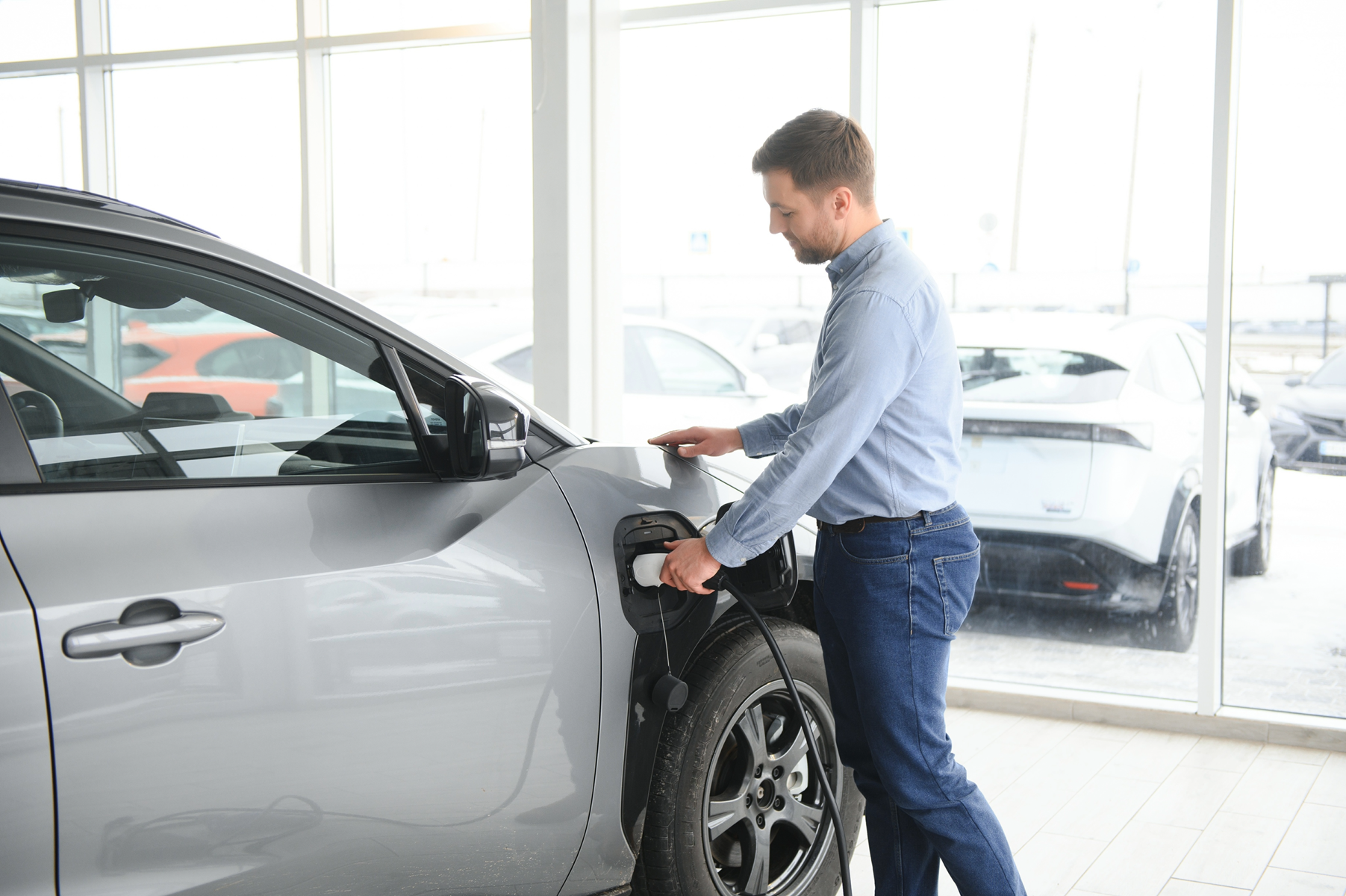Why Car Dealerships Should Invest in Public Charging
2023 was a record year in EV adoption, with 1.2 million vehicles sold in the U.S., which is almost 8 percent of vehicle sales. 2024 will see even greater demand for EVs. Cox Automotive anticipates that the EV share of the US market will reach 10 percent.
Leading auto dealers see that the near-term trend is electric and are adopting their businesses to sell more EVs. According to data from iseecars.com, Non-Tesla new car dealers selling electric vehicles in the U.S. increased from 16.5 percent to 55.1 percent between November 2020 and November 2023.
EVs offer dealerships the unique opportunity to not only earn money selling and servicing vehicles, but also to offer paid public charging and own the entire EV value chain: sales, servicing, and fueling.
Here are 3 reasons why public charging is a great opportunity for car dealerships:
1. Create a New Revenue Engine
The surprising secret about dealerships is that they make very little margin selling new vehicles, 3.9 percent on average. Dealership margins are much healthier in the Service & Parts Department, where margins are closer to 40 to 50 percent. As more EVs hit the roads, the Service & Parts cash engine is at risk because EV maintenance costs are 20 percent to 50 percent lower than gas vehicles. Dealerships can mitigate this risk by investing in EV public charging infrastructure, especially fast chargers that the driving public seeks out, which have gross margins that can exceed 75 to 100 percent. Friendly Chevrolet, in Dallas, Texas, invested heavily in EV Charging infrastructure and after only 6 months in operation, is earning around $60,000/month from public charging.
2. Attract EV Drivers and Increase EV Sales
In 2022, according to the National Automobile Dealers Association (NADA), the average dealership spent over $500,000 on advertising. They need to spend a lot on advertising to attract buyers, who might only go into a dealership once every 10 years. By creating a charging hub in the community, every driver coming into charge is a potential future customer for the dealership. Friendly Chevrolet sold several new vehicles to drivers who came in while charging their vehicles at their EVHQ charging hub in the first 6 months.
3. Keep Costs Manageable
The price tag of installing EV charging stations can be a hurdle for auto dealerships, but there are options to lower this barrier. In addition to existing federal tax credits, there are many state, local government, and utility-managed programs to offset the upfront costs for companies that install EV charging infrastructure. The funding is limited and eligibility can vary but publicly accessible networked charging is typically a requirement. Dealerships should begin exploring their options now.
As mainstream EV adoption continues to grow, auto dealerships are at the forefront of delivering our clean transportation future. They have a unique opportunity right now to capitalize on this with public charging.
GM, in particular, has shown its commitment to electrification by deploying charging solutions, including EV Connect, at their dealerships throughout the U.S. and Canada. Like GM, dealers that make the move today are setting themselves up to remain competitive moving forward.
If you’re wondering how to add EV charging stations to your dealership, EV Connect can help. As one of America’s largest charging networks, we’ve helped countless businesses install charging stations to remain competitive as the world goes electric. Connect with us to learn more and read our EV Charging 101 guide to see how your dealership can prepare for an EV future.
Sources
https://www.coxautoinc.com/market-insights/q4-2023-ev-sales/
https://www.jdpower.com/cars/shopping-guides/how-much-does-a-new-car-dealer-make-on-a-deal
https://www.rab.com/unusual/PDFs/Nov2020/2019%20NADA%20Data%20Full.pdf
https://www.caranddriver.com/shopping-advice/a32494027/ev-vs-gas-cheaper-to-own/
https://advocacy.consumerreports.org/wp-content/uploads/2020/10/EV-Ownership-Cost-Final-Report-1.pdf

